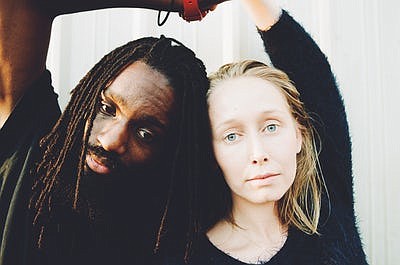This week, America will celebrate Black History Month for the 42nd time. Like its precursor, Negro History Month, whose 50-year shelf life from 1926 to 1976, perhaps – hopefully – Black History Month is nearing the end of its run as well. The term Black History Month was never suitable, appropriate or accurate to begin with.
When Carter G. Woodson established Negro History Month in 1926, he was a visionary and staunch advocate in his attempt to uplift his people at a time when we were despised and held in the lowest regard. Dr. Woodson believed if the larger society knew “Negro” history, accomplishments and potential, we might be held in higher esteem. In Woodson’s time, Negro was the only identification available for African Americans.
Fifty years later, during America’s 1976 bi-centennial, President Gerald R. Ford acknowledged and signed into law, Black History Month, as an official national annual commemoration. Thanks largely to James Brown’s major hit eight years earlier, “Say It Loud, I’m Black and I’m Proud,” the term ‘negro’ had become anathema— ‘black’ culture ruled the day.
Black as a description is cool. Black as a definition for a people is bad for two reasons.
First, defining our culture and history by a color is an affront to our heritage. Our heritage, our African legacy, goes back to the very beginning of human life on this planet, as we know it in the Fertile Crescent. Black History began in the American South with nameless, faceless, dark people in chains.
Why do we tolerate such a designation that does not speak to our proud ancestral origins? African Americans are who we are. We are probably the only group of Americans who don’t know our familial or ancestral history beyond our own memories or the oral histories of our immediate past relatives.
Embracing ‘black’ as our history must end. Would indigenous Americans define their heritage as Redskin History? White History for Europeans? Yellow History for Asians? How about Beige and Brown History for Near and Middle Easterners? Sound absurd yet?
Second, and perhaps a more pernicious result of accepting black as a definition of who African Americans are, is it legitimizes Caucasians to identify as ‘white.’ Identifying as black and white in America is the BIGGEST hindrance to racial amelioration. Try as you may, it is nearly impossible to connect black to white. The shades of gray are too many to easily bridge. It is much easier, and more accurate, to go from chocolate to vanilla.
The artificial designations of black people and white people, creates a stark dichotomy that informs a wider chasm than actually exists between us. Being ‘white’ affords Caucasians the intrinsically racist rationalization that ‘non-whites’ are minorities or the minor people, a ‘logical’ justification for an us versus them mentality.
African Americans are complicit. Political leaders, academicians, journalists, spiritual leaders— African American and Caucasian— all complacently accept this demeaning description of non-Caucasian people which encourages a WE are above THEM mindset among Caucasians, seen routinely and casually in private and public discourse, and across every media platform.
Black and white is fiction. There are no blacks or whites. Yet, these designations are official terms on official documents across our society, required indices on government, academic, employment and other documents and transactions.
Should we get rid of the ‘white’ designation and substitute the word with ‘majorities’ in all our discourse instead, ascribing the word to identify ‘whites’ as routinely as ‘minorities’ is ascribed to identify ‘non-whites?’ Sound absurd yet?
Observe African American History Month! Perhaps in another 50 years it will be American History Month and the plethora of races, cultures, ethnicities, religions and genders that comprise our country will all be acknowledged and celebrated.
